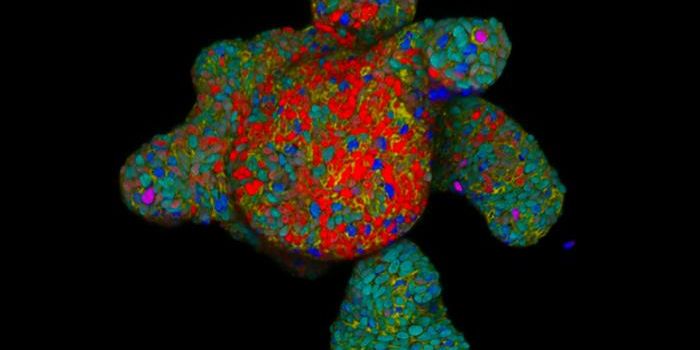New CRISPR Device Diagnoses COVID in an Hour, Detects Variants
A team of engineers from MIT and Harvard University has developed a COVID diagnostic device with a tiny footprint but huge potential. The tabletop instrument costs around $15 to manufacture and is powered by CRISPR technology. It provides COVID results from spit samples in an hour.
In their new study published in Science Advances, the researchers report that the device is incredibly accurate, matching performance levels of the current gold standard, the PCR test. Moreover, the technology can be adapted to identify SARS-CoV-2 variants, making it easy to track the circulation of these mutants without the need for genetic sequencing facilities.
The researchers' goal was to apply CRISPR diagnostic technology to detect SARS-CoV-2, specifically in saliva, for quick and easy sample collection. This molecular detection platform, SHERLOCK, uses an RNA guide strand that hones in on specific RNA sequences on the coronavirus' genetic material. Then, the Cas enzyme snips these sequences, generating a glowing fluorescent signal that indicates the presence of an infection.
However, working with saliva samples poses a challenge—spit naturally contains protective enzymes called nucleases that degrade nucleic acids. To work around this, the team added a pre-treatment step in which a chemical turns off these enzymes before the viral RNA is collected through a specially designed membrane.
"That membrane was key to collecting the nucleic acids and concentrating them so that we can get the sensitivity that we are showing with this diagnostic," said Rose Lee, one of the platform's inventors.
The researchers report that the device can hold up to four 'modules', each programmed to detect either the authentic coronavirus or one of its variants. This provides users to customize assays and perform broader epidemiological surveys.
Sources: Science Advances, MIT News.










